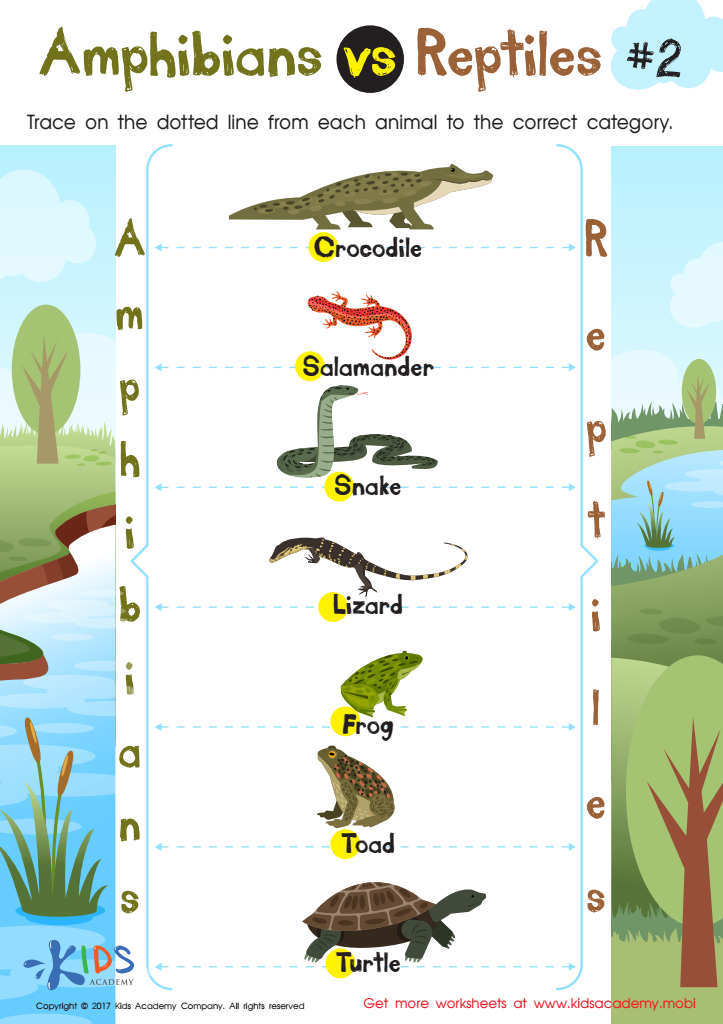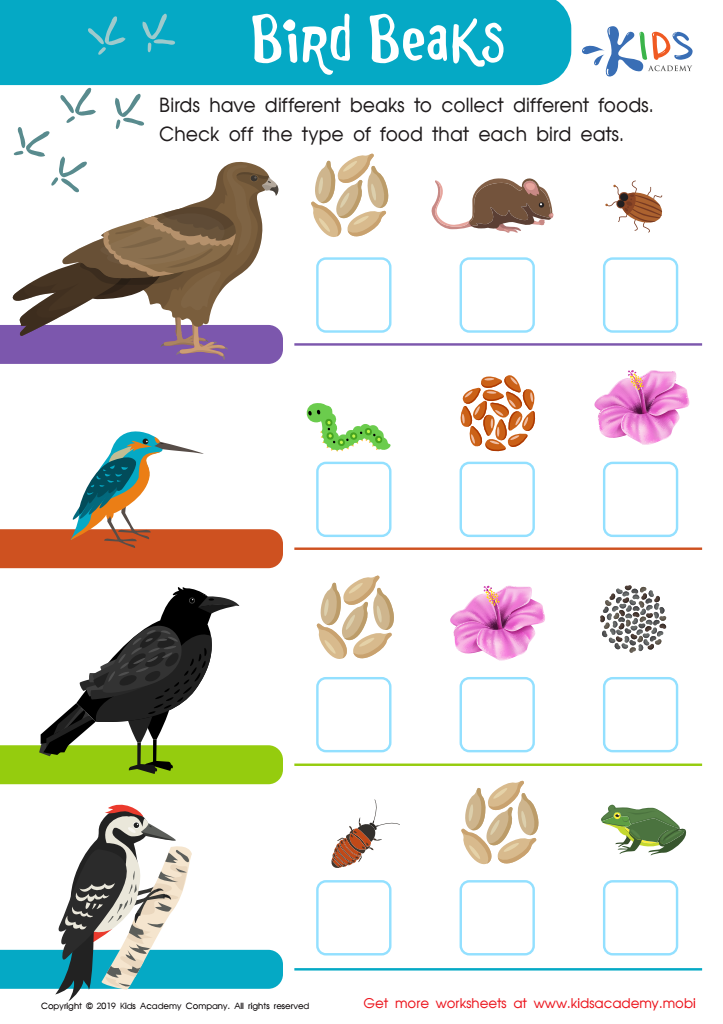Classification skills Normal Science Worksheets for Ages 4-9
5 filtered results
-
From - To
Discover our engaging "Classification Skills Normal Science Worksheets" designed for children ages 4-9. These worksheets foster essential skills in organizing and categorizing information, helping young learners make sense of the world around them. Through fun and interactive activities, kids will explore different categories, such as animals, plants, and everyday objects, enhancing their critical thinking and observational skills. Perfect for classroom use or at-home learning, these worksheets align with educational standards and promote a hands-on approach to science. Encourage your child's curiosity and understanding of how things are classified in nature and beyond with our thoughtfully created resources!


Matter: Assessment 1 Worksheet


Amphibians vs Reptiles Worksheet for 3rd Grade


Bird Beaks Worksheet


Animals and Plants: Assessment 2 Worksheet


Space: Assessment 2 Worksheet
Classification skills are essential for children aged 4-9, and parents or teachers should prioritize their development for several reasons. First, these skills lay the groundwork for logical thinking and analytical reasoning. By helping children categorize objects, they practice making connections and understanding relationships, which are crucial cognitive abilities.
Secondly, classification promotes language development. As children learn to label and describe their categories, they expand their vocabulary and communication skills, enhancing their ability to express ideas and articulate thoughts.
Moreover, classification aids in scientific understanding. It introduces children to the scientific method, encouraging them to observe, group, and differentiate between various attributes. This foundational knowledge instills a sense of curiosity about the natural world and supports inquiry-based learning, invaluable in later STEM education.
Additionally, classification contributes to social skills; as children work together to sort items, they engage in cooperative play and practice vital teamwork and negotiation skills.
Overall, fostering classification skills is a crucial element in early childhood education, setting a strong precedent for future learning and personal development, equipping children with essential life skills that extend far beyond the classroom. By nurturing these skills, parents and teachers empower young learners to think critically and explore their surroundings thoughtfully.
 Assign to My Students
Assign to My Students





%20(1).jpg)








